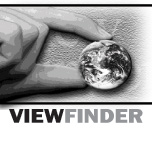|
Positive end to nuclear stand-off still possible
Li GuofuChina Daily Updated: 2006-02-16 06:36

After numerous twists and turns Iran's nuclear programme is once again taking
centre stage in the global political arena.
Since Iran resumed operations at its uranium conversion plant in Isfahan in
August last year, relations between Iran and the European Union have suffered
major setbacks, with both sides trying to find a diplomatic solution.
Strained relations started to improve at the end of the year when the two
sides agreed to hold preliminary meetings on breaking the deadlock.
But Iran, shrugging off repeated warnings from the International Atomic
Energy Agency (IAEA), removed United Nations seals on its nuclear facilities on
January 10, ready to resume enriching uranium.
The United States and the EU have long accused Iran of engaging in a nuclear
weapons programme and not using technology purely for peaceful purposes.
As material acquired through enriching uranium can be used both for peaceful
purposes and for nuclear weapons, they argue, the only way to "guarantee" Iran
cannot produce nuclear weapons is to ban Teheran from engaging in any uranium
enrichment.
Representatives of Britain, France and Germany that are negotiating for a
diplomatic solution have maintained that the resumption of enrichment
demonstrates Iran's lack of sincerity. The European nations and the United
States insisted the matter be reported to the United Nations Security Council
and favour imposing sanctions.
The United States' stance has hardened. Although Washington has reiterated
time and again that the stand-off should be resolved through diplomatic
channels, high-ranking government officials are talking about the possibility of
using force to destroy Iran's nuclear facilities.
Britain, France, China, Russia, the United States the permanent members of
the Security Council and Germany held negotiations in Britain in the middle and
at the end of January. They agreed during the second round of talks that the
matter should be reported to the UN Security Council.
Hot on the heels of the six-party talks, the IAEA's Special Board of
Governors passed a draft resolution at its meeting on February 4 to report
Teheran to the UN Security Council. China voted for the resolution.
The IAEA, in line with the resolution, will report the nuclear programme
deadlock to the UN Security Council and keep the body updated, but not submit it
to the council. The key to resolving the matter is still in the hands of the
IAEA.
China's support is consistent with its long-standing position on the Iranian
nuclear programme. Beijing has consistently pressed for the settlement of the
question through negotiations.
The "yes" vote from China at the IAEA Special Board of Governors meeting was
granted because delegates believe the passage of the draft resolution will
facilitate the breaking of the deadlock and will ease tension.
Ambassador Wu Hailong, China's representative to the UN organizations in
Vienna, said all parties concerned should leave no stones unturned in the search
for a diplomatic solution even though negotiations have run into difficulties.
As a result, China appeals to all sides to remain calm and exercise
self-restraint in order to avoid action that would make matters worse.
China also urges that all parties act as astute judges of the situation and
demonstrate as much flexibility as possible so the matter can be properly
resolved through negotiations.
Beijing will continue to play its unique role in resolving the nuclear
deadlock.
Iran has strongly opposed the IAEA resolution, claiming the Western
countries, with ulterior political motives, are trying to rob Iran of its
legitimate rights.
Iranian President Mahmoud Ahmadinejad ordered an end to voluntary
co-operation with the IAEA, the resumption of nuclear activities and a halt to
implementing the Additional Protocol of the Treaty on the Non-Proliferation of
Nuclear Weapons.
The Iranian presidential order makes it clear Iran will no longer allow
inspections of its nuclear facilities to be conducted by international
personnel.
The tough stance of the Iranian Government has made the US and EU more
determined to submit Iran's nuclear bid to the UN Security Council.
Mohammed ElBaradei, director-general of the IAEA, is expected to submit an
evaluation report to the IAEA Board of Governors on March 6, giving his
assessment of Teheran's nuclear programme.
The report will have a great influence on whether the matter is submitted to
the UN Security Council or not.
Although the conclusions of the director-general's report are not yet known,
ElBaradei has expressed grave concern about the direction in which the nuclear
deadlock is going.
He made it clear that the IAEA is unable to verify the peaceful nature of
Iran's nuclear activities despite three years of thorough investigations
conducted by his agency.
The three weeks between now and March 6, when the IAEA Board of Governors
meetings will be convened, are vitally important.
We are at a crucial crossroads. It is generally believed that if Iran does
not budge, it is likely the Security Council will step in.
Once the IAEA decides to submit the matter to the UN Security Council, it is
possible sanctions against Iran may be introduced.
The situation could escalate bringing consequences no one wants to see.
Strong measures against Iran, including sanctions, would inevitably harm the
interests of all parties involved. Taking this into account, the possibility of
a positive solution should not be ruled out.
The author is a senior research fellow and director
of the Centre for Middle East Studies under the China Institute of International
Studies.
(China Daily 02/16/2006 page4)
|

